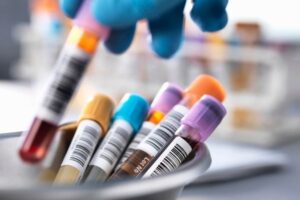Sterling Pathology urges scalable testing and PCR tests
LOS ANGELES—As Americans ready themselves to ring-in a new year, Omicron rages across the globe, and pandemic fatigue is being compounded by a testing crisis. Sterling Pathology, a California-based lab, is urging organizations to adopt scalable testing and PCR tests to prevent the spread of Omicron, a new variant that comprises 73% of new cases in the United States.
“Let’s ring in the new year with a resolution to be prepared with a strong and sustainable scalable testing plan,” added Dr. Yang, Sterling Pathology medical director. “We can arm our communities against this virus with testing to prevent the spread and save lives.”
In some areas of the country that number has soared to 90 percent, including New York and New Jersey, as well as parts of the Midwest, the South and the Pacific Northwest, per NBC News. Fears are mounting as Americans travel and congregate for holiday celebrations. The New York Times reported Tuesday that a “growing body of preliminary research suggests the Covid vaccines used in most of the world offer almost no defense against becoming infected by the highly contagious Omicron variant.”
“Preparedness prevents panic, prevention pays dividends,” added Yang. “Let’s prevent suffering and fear with proactive solutions.”
Rapid tests can deliver results within 15 minutes and are becoming more popular because of their speed of reporting Covid-19 positive results. However, PCR tests are the “gold standard” and despite the longer 24-48 hour time window for results and can even detect results in asymptomatic cases.
The tests Sterling Pathology offers are FDA-approved for emergency use authorization (EUA) during the COVID-19 pandemic. The pathology and genomics lab offers tailored programs that allow large organizations like schools, businesses and governments to administer and oversee scalable testing.
Sterling Pathology’s molecular testing is capable of detecting active COVID-19 infections in the human body. Unique genetic markers of the virus can be found in RNA that only remains in the body while the virus invades and replicates itself. The benefits of molecular testing is its sensitivity in detecting active infections, allowing patients to receive appropriate treatment options from their Care Provider, and take measures to prevent spreading the infections.


